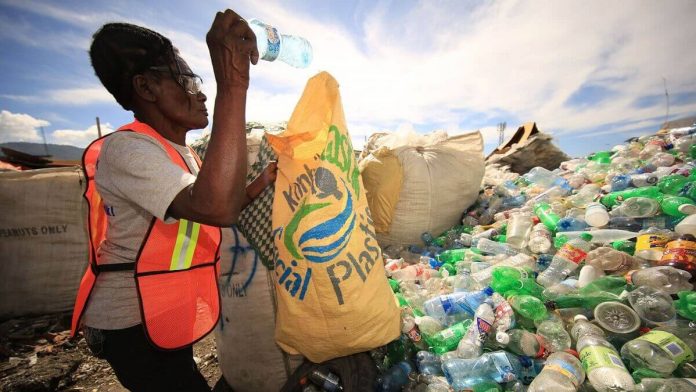To call this social enterprise ambitious is to engage in outrageous understatement: Monetize plastic waste found in beaches and other waterways, turn it into a source of income for people at the bottom of the pyramid, and then recycle the stuff, so it’s not littering the planet. Oh yes, and give plastic collectors access to 3-D printers.
Call it “social plastic.” Or, at least, that’s what David Katz and Shaun Frankson, co-founders of a startup aimed at doing this, use to describe the concept.
The Vancouver-based company, called The Plastic Bank, plans to use plastic as a form of currency that people living in poverty can gather and trade in to recycling centers located in impoverished areas with a lot of plastic waste. Then the centers, operated by Plastic Bank, would recycle the material on-site or ship it to a plant somewhere else where the plastics would be separated and recycled.
Ultimately, Plastic Bank would make money by selling the recycled material to businesses that might see the potential in making products created from plastic collected by the world’s poor and prevented from entering the ocean.
So, someone, say, working in a gas station could collect all the bottles around, bring them to a local center, and exchange then for goods (not cash), at a rate of about 25 cents per pound. Each center would have a few basic items in stock. But mostly, people would order items from a catalog.
Or–and this is the really wild part–collectors can get access to a 3-D printer, which they can use to make items that have an impact on the community–a water filter, for example, or a sprocket– and then turn themselves into entrepreneurs by selling the stuff.
The plan is to launch the first pilot in Lima, Peru, in 2014, where, says Katz, only 2% of waste is recycled. In Lima, the two have found a local entrepreneur, who doesn’t want to be identified and has donated the land on which the center will sit.
The centers won’t be large–just big enough for a shredding machine and containers. The plan is to have multiple centers located in port cities, especially near the South China Sea, which Katz calls “a catastrophe” as far as plastic waste is concerned.
Ultimately, he’s looking to set up shop in Indonesia, Africa and India. He and Frankson figure they need at least $250,000 to really get the project going in earnest.
Analysis:
The ambition of Social Plastic borders, perhaps, on absurdity, but it is hard to deny how compelling this project is. One part of the business model which stuck with me, was the way in which a new currency system has been developed around these materials, and that a whole digital marketplace has been built in the foundation of physical waste. It makes me think more carefully, as well, about the economic value of our waste.




